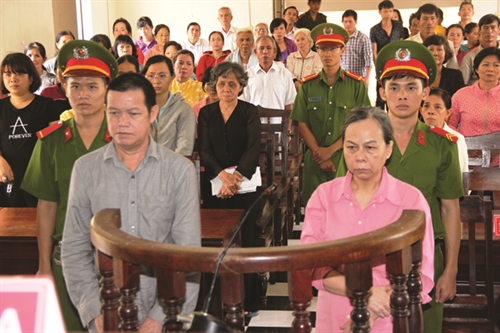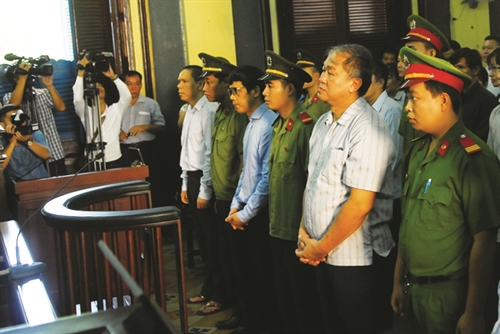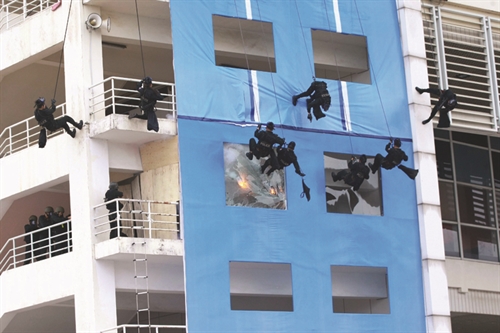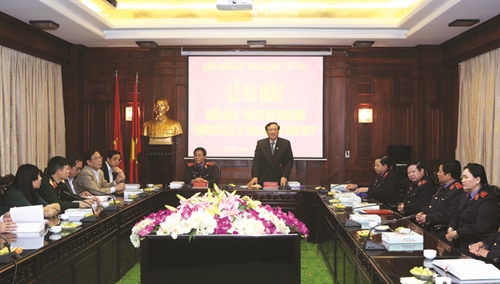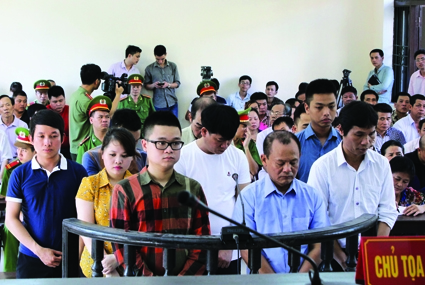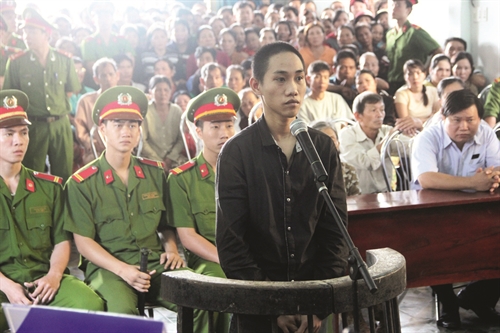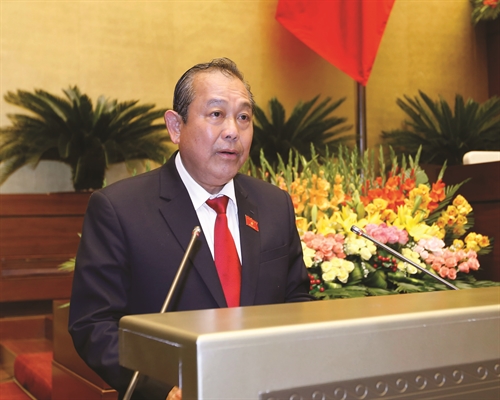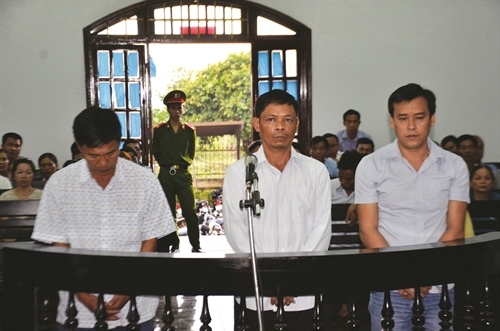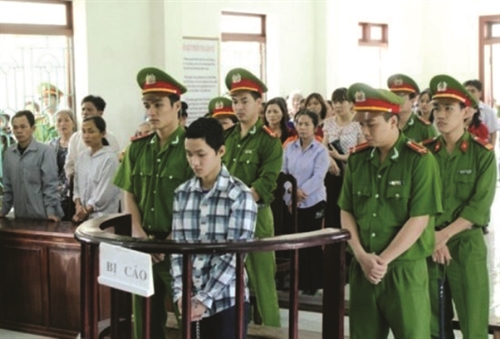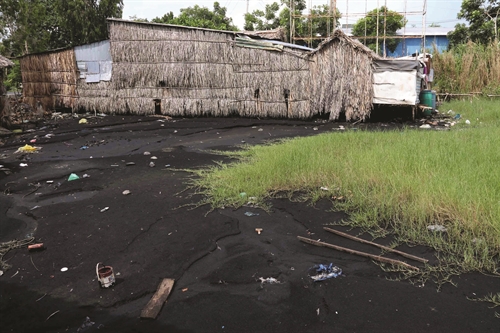Lawyer Le Van Sua, LL.M
Bar Association of Tien Giang province
As a deterrent measure of high applicability, bail was provided very early in Vietnam’s criminal procedure law (Article 75 of the 1988 Criminal Procedure Code and Article 92 of the 2003 Criminal Procedure Code). However, in practice it has been rarely applied partly due to lack of specific provisions to guide, for example, which types of offense for which offenders may be released on bail in replacement of being detained. In other words, its application is at the discretion of investigating bodies, procuracies and courts. Bail has been denied even for many accused persons and defendants with good pesonal backgrounds, having no criminal records or committing an offense for the first time, having clear addresses of residence, sincerely giving statements, showing repentance or being aged or seriously ill or disabled. Besides, this measure has not been brought into play since the criminal procedure law neither requires individuals and organizations that stand bail to deposit money nor spells out their liability for letting bailed persons abscond or fail to appear for subsequent proceedings.
According to the principle of respect for and protection of human rights and lawful rights and interests of individuals laid down in Article 8 of the 2015 Criminal Procedure Code (the Code), when conducting criminal proceedings, competent bodies and persons must respect and protect human rights and lawful rights and interests of individuals, regularly examine the lawfulness and necessity of applied measures, and promptly cancel or change such measures if finding that they violate the law or are no longer necessary. At the same time, in order to address the above problems, Article 121 of the Code provides bail in a more specific manner as follows:
“1. Bail is a deterrent measure replacing temporary detention. Depending on the nature and level of danger to the society of acts and on the personal backgrounds of the accused or defendants, investigation bodies, procuracies or courts may decide to let them be out on bail.
2. Bodies or organizations may stand bail for the accused or defendants who are their employees or members. Bodies or organizations that stand bail shall make written pledges bearing certification by their heads.
Individuals who are aged at least full 18 years, have strictly abided by the law and have good personal backgrounds, stable incomes and conditions for managing bailed persons may stand bail for the accused or defendants who are their relatives, and for this case at least two persons are required to stand bail. Individuals who stand bail shall make written pledges bearing certification by the administrations of the communes, wards or townships where they reside or by the bodies or organizations where they work or study.
In these written pledges, bodies, organizations or individuals that stand bail shall undertake not to let the accused or defendants breach the obligations prescribed in Clause 3 of this Article. Bodies, organizations or individuals that stand bail shall be notified of circumstances of criminal cases related to the bail.
3. An accused or a defendant who is bailed shall make a written pledge to perform the following obligations:
a/ To be present in response to a summons, unless he/she cannot do so due to a force majeure event or an external obstacle;
b/ To refrain from absconding or continuing to commit an offense;
c/ To refrain from buying off, or forcing or inciting another person to make false statements or declarations or provide untruthful documents; to refrain from destroying or falsifying evidence, documents and objects of the case, or dispersing property related to the case; to refrain from intimidating, controlling or taking revenge on witnesses, victims, offense denouncers and their relatives.
In case the accused or defendant breaches the pledged obligations specified in this Clause, he/she shall be detained.
4. Competent persons specified in Clause 1, Article 113 of this Code and judges presiding over court hearings may issue bail decisions. Decisions of persons specified at Point a, Clause 1, Article 113 of this Code shall be approved by same-level procuracies in order to be executed.
5. The bail time limit must not exceed the investigation, prosecution or trial time limit prescribed in this Code. The bail time limit for a person sentenced to imprisonment must not exceed the period from the time his/her imprisonment sentence is pronounced to the time such person starts serving the sentence.
6. Bodies, organizations or individuals that stand bail but let the bailed accused or defendants breach the pledged obligations shall, depending on the nature and seriousness of their violations, be fined in accordance with law.”
According to the above provisions, bail, as a measure to replace temporary detention, may only be applied to temporarily detained accused and defendants and decided by competent persons when seeing it necessary to replace the measure of temporary detention. Depending on pesonal backgrounds of the accused or defendants and the level of danger to the society of their criminal acts, investigating bodies, procuracies or courts may decide to allow them to be bailed. These provisions are more specific than those of the 2003 Code regarding requirements on the age, income, conditions and number of individuals who may stand bail for an accused or a defendant who is their relatives, and on contents of a written pledge to be made by the accused or defendant. Another new provision is that a bailed accused or defendant who breaches the pledged obligations will be put into temporary detention. The time limit for application of this measure is also set more specifically, which must not exceed the investigation, prosecution or trial time limit or, for a person sentenced to prison, the period from the time his/her imprisonment sentence is pronounced to the time he/she starts serving the sentence.
Bail is less stringent than temporary detention because it neither restricts the right to freedom of movement of the accused and defendants nor separates them from the community.
From the above provisions and analysis, bail can be defined with the following characteristics:
- Bail is one of the deterrent measures provided in the criminal procedure law;
- Bail is less stringent than other deterrent measures;
- Bail can be applied in replacement of temporary detention;
- Only the accused and defendants are bailable;
- To grant bail, proceeding-conducting bodies and persons must base themselves on certain grounds and conditions;
- Bail must be applied by competent persons in proceeding-conducting bodies and according to procedures established by law;
- Bail is aimed at not letting the accused and defendants commit further offenses or obstruct the investigation, prosecution or trial and guaranteeing their presence at proceeding-conducting bodies.
This measure involves three parties in the criminal proceedings: proceeding-conducting body, the accused/defendant, and party standing bail whose legal obligations arise since the issuance of a bail permission decision. The advantage of this measure is that it creates conditions for members of the community to take part in the management and education of the accused and defendants.
This measure is distinguishable from other deterrent measures prescribed in Articles 122 and 123 of the Code, including:
Ban on travel outside place of residence: While bail does not restrict the citizens’ rights, ban on travel outside place of residence restricts the right to freedom of movement of the accused and defendants. Without permission, the accused and defendants cannot leave their places of residence. During the ban period, the accused and defendants are placed under the supervision and management by the administrations of the communes, wards or townships where they reside.
Depositing of money as security: In addition to the grounds for application of bail, depositing of money as security, as another measure replacing temporary detention, allows proceeding-conducting bodies to forfeit into the state budget deposited money amounts if the accused or defendants breach their pledged obligation. When the accused or defendants fulfill such obligation, they will be refunded their deposited money amounts.
Bail is more flexible than the two abovesaid measures as it involves families, bodies and organizations of bailed persons in supervising and managing them, thus facilitating their reintegration into the society. In order to better safeguard the freedoms and democratic rights of people, the State permits the proceeding-conducting bodies to apply necessary deterrent measures to help the settlement of criminal cases while still ensuring fundamental citizen rights.
According to the criminal procedure laws of some other countries, bail is applied to individuals to ensure their appearance before judicial bodies at the required time and prevent them from obstructing the settlement of criminal cases. The surety has to deposit a money amount as the bail which will be forfeited into the public coffers if the bailed person breaches the secured obligation. In this case, the surety may be fined as well.
In order to effectively enforce the provisions on bail without encountering problems which have occurred in the course of implementation of previous provisions on bail, the central judicial agencies should issue a joint circular to guide in detail Article 121 of the Code.
Such a circular should provide clear grounds for application of bail. Based on Clause 1 of Article 121, it should specify the nature and level of danger to the society of criminal acts of the accused and defendants who are bailable and who are not. Bail should be applied only to persons who are investigated, prosecuted or tried for less serious or serious offenses or for very serious offenses unintentionally committed. Persons committing an offense infringing upon the national security should be denied bail.
It should set conditions on persons wishing to stand bail. For example, a person standing bail for an accused or a defendant must pay a bail worth at least 10 months’ minimum wage paid at the time of bail in cash or in monetizable security titles. Bail may not be made in kind or underlying mortgage.
Defense counsels for the accused and defendants should be allowed to stand bail for their clients. Persons residing in the same locality with an accused or a defendant may stand bail for the latter in order to ensure constant supervision and promptly report to the proceeding-conducting body that permits the bail any law-breaking act or act breaching the pledged obligation of the bailed person or just his intention to take such act.
It should also specify bail conditions and limitations. Bail should only be applied to an accused or a defendant who commits an offense for the first time, has a clear address of residence, has sincerely given statements and shows repentance; has a serious or particularly serious disability; is a pregnant woman or nursing an infant aged under 36 months; is an aged person or a minor or seriously ill. Other conditions should be grounds to believe that an accused or a person, once released, will appear for a proceeding and that the release of the bailed person will not disturb local security and order.
Bail should not be granted to the accused and defendants whose previous convictions have not yet been wiped off and who commit a very serious or particularly serious offense; those who are arrested under pursuit warrants, professional criminals or drug addicts; and those whose criminal acts are condemned by the public.-
